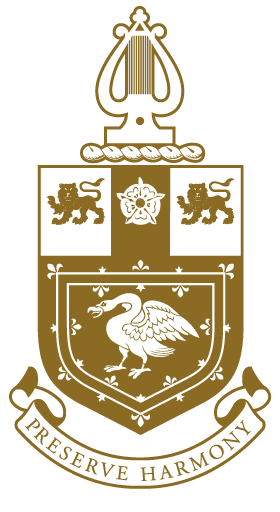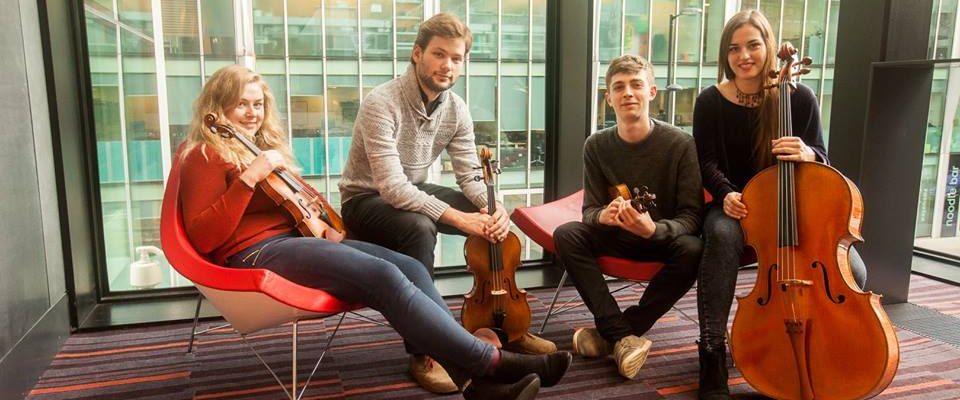Young Artist Interview: Freddie James
For me, like for many organists, starting organ lessons felt like a natural progression as my time as a chorister at Southwark Cathedral drew to a close. For seven years as a chorister I’d heard the organ in cathedral services almost every day, played masterfully by Stephen Disley and Peter Wright both in support of the choir and in solo repertoire. The choir also toured regularly and participated in external concerts, and particularly memorable for me as a young chorister was a performance of Mahler’s 8th Symphony in the Royal Albert Hall, where the organ’s towering chords managed almost entirely to drown out the full orchestra.
After finishing school, I was fortunate to have the chance to spend three years as Organ Scholar at St John’s College, Cambridge. Here I accompanied the college’s choir of 16 boy choristers who study at the college school and 15 choral scholars and two organ scholars who study at the university in their demanding schedule of seven services a week during term, and regular broadcasts, concerts and recordings out of term-time. Encouraged by the Director of Music, Andrew Nethsingha, the Choir of St John’s maintains a distinctive style, with a rich and vibrant tone influenced by continental boys’ choirs, and characteristic approach to phrasing, characterised by a detailed approach to word stresses.
At St John’s we performed a huge range of music from Gregorian chant to Bach Cantatas with the college’s period instrument orchestra, from the warhorses of the Victorian church music to a regular stream of new commissions. It was exciting and daunting to have the chance to accompany the choir and play solo pieces in choir concerts around the country in venues such as the Royal Festival Hall, and on tours that included the USA and Japan. It was memorable to perform in Tokyo’s Suntory Hall as a 21-year-old, and to see the wall backstage where some of the venue’s most distinguished performers, from Herbert von Karajan and Celibidache to Solti and Pollini, had signed their autographs.
At the end of my final year as Organ Scholar I played for the choir’s recording of music by Thomas Tomkins for Chandos, and as well as accompanying the choir in a variety of anthems, had the chance to record three pieces for organ solo. I especially enjoyed recording his Pavan For These Distracted Times, composed by Tomkins, a staunch royalist, only days after King Charles I had been beheaded, which eloquently conveys his anguish at the course of events.
The continuing success of the English church music tradition depends on organists learning their trade through what is essentially the old apprenticeship system. As an Organ Scholar observing on a daily basis the Director of Music, himself a former St John’s Organ Scholar, I followed in a long line of distinguished predecessors, picking up the necessary skills of accompaniment and choir training, and numerous tricks of the trade through daily practical experience. As a student now in Stuttgart, it has been interesting to compare and contrast my experiences with the German church music education system, where organists have to study for a Church Music Diploma in music college for six or more years before being able to work in major churches.
At St John’s we often worked with other ensembles, most frequently the St John’s Sinfonia, the college’s period instrument ensemble, but also amongst others with the Orchestra of the Age of Enlightenment, Fretwork, His Majesty’s Sagbutts and Cornetts, and the Philharmonia Orchestra and I often had the chance to play continuo or orchestral organ. It is always interesting to work with groups outside the English choral world or the organ world, both of which, for all their strengths, could be described as having a slight tendency to insularity. It was very informative to see how Andrew Nethsingha was able to find musical common ground between St John’s Choir and instrumental groups and make a synthesis of styles work successfully in performance.
While traditional English church music has been a large part of my musical education, I’ve always been inspired by the pioneers of the early music movement and their achievements in advocating neglected repertoires and creating vibrant and new sound worlds, which I find compelling in their own right, independent of questions about historical accuracy. I particularly enjoy listening to recordings of Gustav Leonhardt, who I was fortunate to be able to hear live twice in Amsterdam shortly before his death, with his subtly nuanced and always perfectly judged flexibility, and David Munrow’s creative and vibrant accounts of medieval music.
These interests led me to study in Amsterdam with Professor Jacques van Oortmerssen and Stuttgart with Professor Ludger Lohmann assisted by the Nicholas Danby Trust and the WCOM, with a focus on early music repertoires and informing my performances through study of sources. On the organ we play music from an exceptionally wide range of historical periods – today I have practiced music by Paul Hofhaimer (1459–1537) and Brian Ferneyhough – and it would be hard to do so without some degree of self-consciousness as to performance style. In addition I’ve been able, aided by the WCOM’s W T Best Memorial Scholarship , to visit historical organs from different periods around Europe and I always learn a lot from playing repertoire on the instruments for which it was written. It has been particularly enjoyable to perform concerts on instruments such as the baroque organ in the Nieuwe Kerk in Amsterdam and the late romantic instrument in the Stadtkirche in Giengen an der Brenz, and I still feel I have a huge amount yet to discover.





